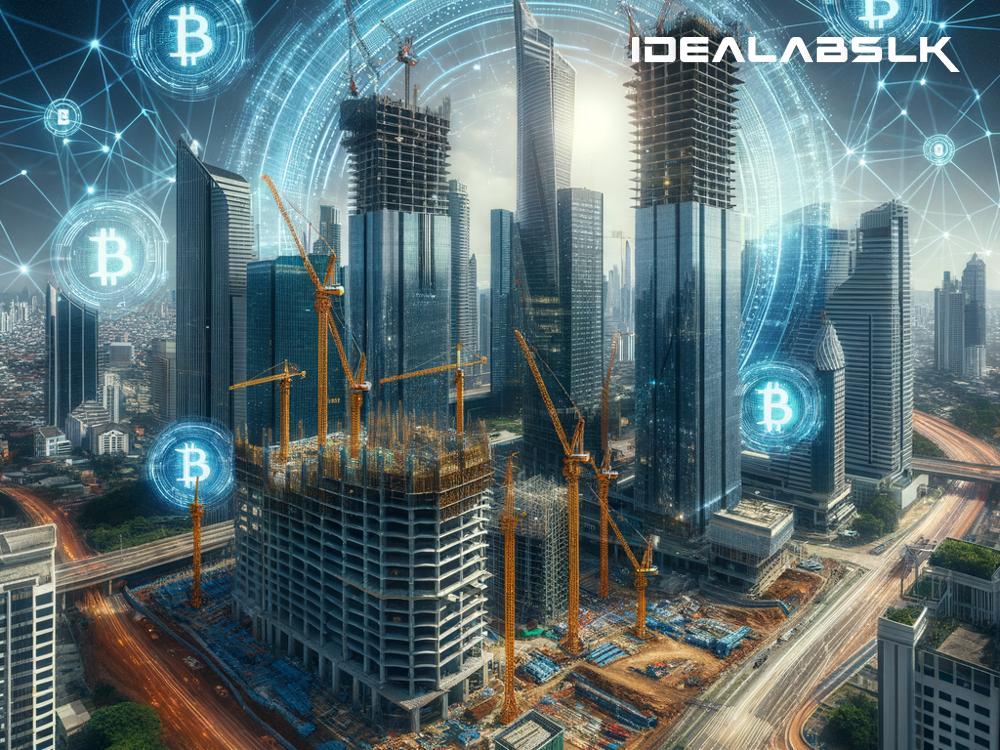Blockchain for Real Estate: Transforming Development and Construction
In the vast and complex world of real estate, blockchain technology is starting to make waves, promising a future where transactions are smoother, more transparent, and secure. But what exactly is blockchain, and how is it impacting the real estate development and construction sectors? Let's dive in and explore this in simple English.
What is Blockchain?
At its core, blockchain is a kind of digital ledger. Picture a traditional ledger that a business might use to record transactions – sales, purchases, etc. Now, imagine that ledger is online, incredibly secure, and updated instantly across the world whenever a transaction occurs. That's essentially what blockchain is. It's this technology that powers cryptocurrencies like Bitcoin, but its potential extends far beyond just that.
The Impact on Real Estate Development and Construction
Real estate development and construction are industries built on large sums of money, complex projects, and a web of contractual relationships. Blockchain technology is starting to show how it can simplify these complexities and add a level of security and efficiency previously unattainable. Here’s how:
1. Simplifying Transactions
Buying a piece of property involves lots of paperwork, checks, and verifications. Blockchain can streamline this process by securely recording every aspect of a transaction, from the initial agreement to the final sale, in a way that's both transparent and tamper-proof. This can cut down on the time and cost associated with real estate transactions significantly.
2. Enhanced Security
Real estate transactions involve significant amounts of money, making them a target for fraud. Blockchain's secure nature helps mitigate this risk. Every transaction is encrypted and linked to the previous one, making it extremely difficult for fraudsters to alter any information. This can give both buyers and sellers greater peace of mind.
3. Smart Contracts
Imagine contracts that automatically enforce themselves once certain conditions are met, without the need for human intervention. That's what blockchain enables through smart contracts. In real estate development and construction, this can revolutionize the way payments are made, how projects are managed, and how disputes are resolved, making the entire process more efficient.
4. Transparency in Transactions
With blockchain, every transaction is recorded in a way that's transparent and easy to track. This can significantly benefit the real estate development sector, where the origins of funds, the history of a property, and the details of a transaction are critical. It can also help in building trust among parties involved in a transaction or a project.
5. Tokenization of Real Estate Assets
Blockchain allows for the tokenization of real estate assets, meaning you can own a part of a property digitally. This can open up investment in real estate to a broader audience, breaking down financial barriers and allowing for more flexible investment options. For developers, it means access to a larger pool of potential investors.
6. Efficient Project Management
Managing a construction project involves coordinating between numerous parties, schedules, and resources. Blockchain can offer a single, unchangeable record of all transactions, agreements, and project milestones. This can help in reducing disputes, ensuring everyone is on the same page, and potentially speeding up project timelines.
The Future of Blockchain in Real Estate
While the potential of blockchain in real estate development and construction is vast, it's still early days. Adoption requires significant changes in how businesses operate and how they use technology. Nevertheless, the momentum is building, with more companies exploring blockchain solutions every day. As technology continues to mature, and as more stakeholders see its benefits, blockchain could well become a cornerstone of real estate development and construction.
Conclusion
Blockchain technology holds the promise of revolutionizing real estate development and construction. By making transactions more secure, efficient, and transparent, it can address some of the industry's most significant challenges. While we're still at the beginning of this journey, the potential for positive change is enormous. For anyone involved in real estate, keeping an eye on blockchain is a must. It's not just about keeping up with technology—it's about seizing opportunities to make real estate transactions more accessible, secure, and fair for everyone involved.

